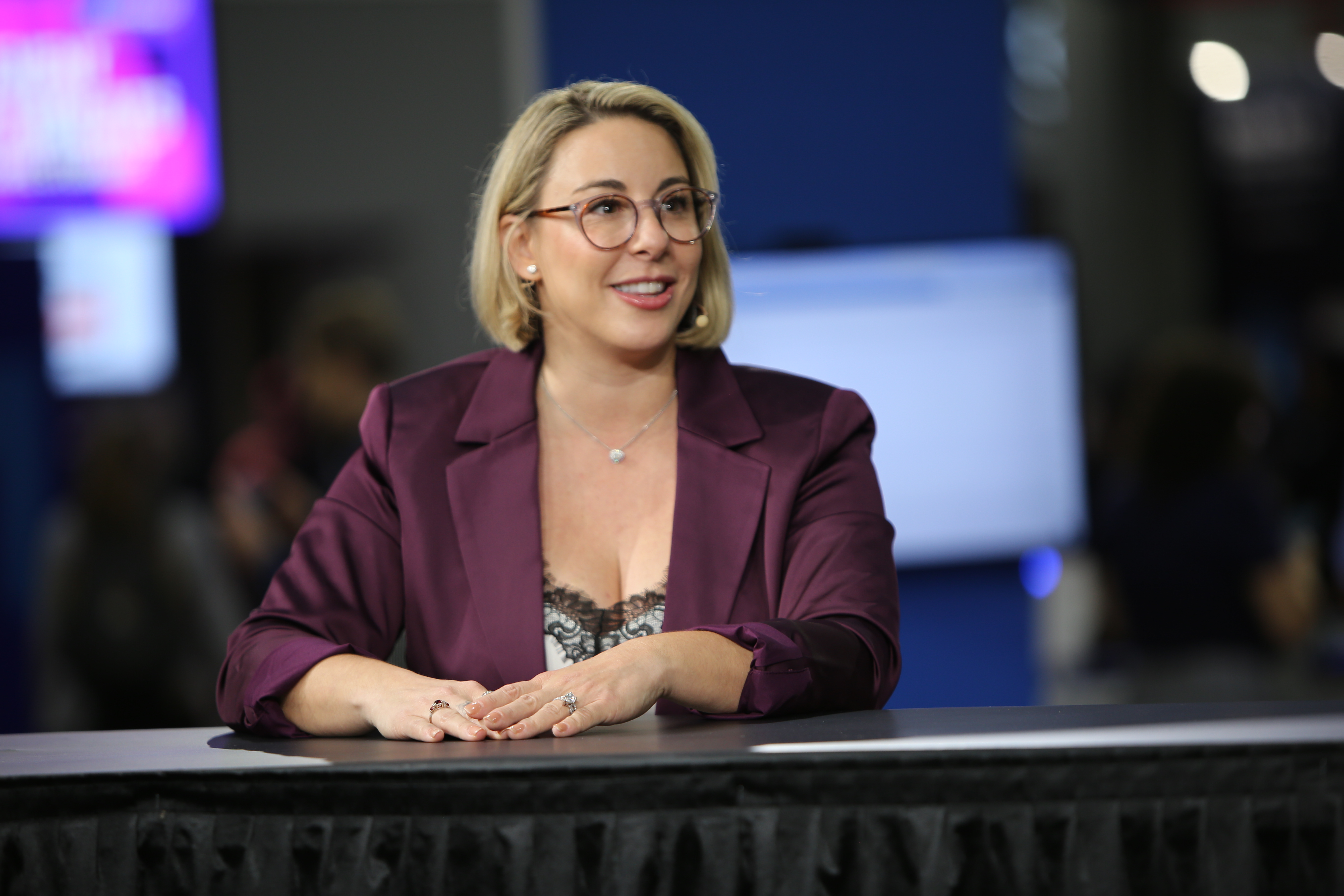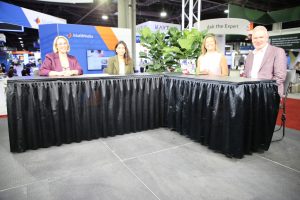 AI
AI
 AI
AI
 AI
AI
The integration of AI in cancer research and high-performance computing is innovating how researchers tackle complex challenges, from understanding disease mechanisms to accelerating life-saving treatments.
Memorial Sloan Kettering Cancer Center is leveraging these advancements through its artificial intelligence supercluster, which has dramatically reduced research timelines.

MSK’s Jessica Audette, Dell’s Geeta Vaghela and Weka’s Jonathan Martin talk with theCUBE about how MSK’s innovative partnerships and advanced supercomputing are accelerating breakthroughs in patient care.
“We are building out our newest supercomputer … and it’s called the Cluster of Discovery,” said Jessica Audette (pictured), head of high-performance computing at MSK. “It’s dedicated to research at MSK. We’re seeing varied workloads on there, but realistically, the infrastructure that we have now has reduced our wall clock time by 30 times to enable our researchers to get their work done faster.”
Audette, along with Jonathan Martin, president of WekaIO Inc., and Geeta Vaghela, senior director of product management, unstructured data solutions, at Dell Technologies Inc., spoke with theCUBE Research’s Savannah Peterson at SC24, during an exclusive broadcast on theCUBE, SiliconANGLE Media’s livestreaming studio. They discussed how AI in cancer research, powered by innovative partnerships and advanced supercomputing, is accelerating breakthroughs and transforming patient care. (* Disclosure below.)
The collaborative approach between Dell, Weka and MSK demonstrates the power of partnerships in achieving groundbreaking research outcomes. By aligning shared goals and leveraging each organization’s expertise, the partnership has created an infrastructure capable of delivering real-world value and advancing critical cancer research, according to Vaghela.
“Building out the right infrastructure, really trying to support our partners in getting to these kinds of groundbreaking outcomes … ultimately, we’re just making the world a better place,” she said. “When it comes to fruition and you kind of see that outcome where it all comes together, it’s a little bit magical.”
The IRIS supercluster supports genomics, oncology and computational biology workloads, significantly enhancing patient care and discovery timelines, according to Audette. These advancements highlight the transformative role of AI in cancer research, enabling breakthroughs such as reducing patient recovery times and achieving a 100% success rate in a colon cancer clinical trial.
“Essentially, what would’ve taken years is taking months,” Audette said. “What would’ve taken months is taking weeks … in the research realm, it’s not first to publication anymore; it’s first to discovery.”
The system is designed to simplify access for researchers and maximize their productivity. MSK’s scientific computing team bridges the gap between technology and science, enabling principal investigators to focus on groundbreaking research while leveraging scalable, high-performance infrastructure, according to Audette.
“Our environment is extremely scalable,” she said. “We have our scientific computing team that works directly with our PIs and their labs to understand their science, kind of bridge that gap between science and technology and really help them with their workloads.”
Organizations adopting advanced AI infrastructure are witnessing a paradigm shift as new technologies transform traditional workflows. Progressive companies are investing in specialized data platforms and high-speed networking to handle the demands of AI workloads, according to Martin.
“It’s very hard to kind of leap forward 30 years and think that you can walk around with a plastic rectangle in your pocket with some of the world’s knowledge on it,” he said. “That’s kind of where AI is right now. We are very, very, very early in the journey … but it is going to transform every walk of life.”
Here’s the complete video interview, part of SiliconANGLE’s and theCUBE Research’s coverage of SC24:
(* Disclosure: WekaIO Inc. sponsored this segment of theCUBE. Neither Weka nor other sponsors have editorial control over content on theCUBE or SiliconANGLE.)
Support our mission to keep content open and free by engaging with theCUBE community. Join theCUBE’s Alumni Trust Network, where technology leaders connect, share intelligence and create opportunities.
Founded by tech visionaries John Furrier and Dave Vellante, SiliconANGLE Media has built a dynamic ecosystem of industry-leading digital media brands that reach 15+ million elite tech professionals. Our new proprietary theCUBE AI Video Cloud is breaking ground in audience interaction, leveraging theCUBEai.com neural network to help technology companies make data-driven decisions and stay at the forefront of industry conversations.